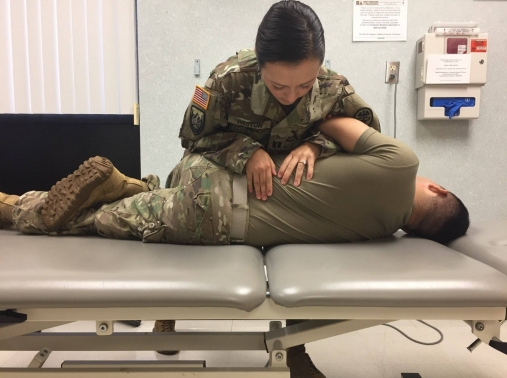|
|
RAND research and commentary on the issues that matter most
|
July 8, 2021
|
|
|
|
|
Photo by Peter Essick/Cavan Images/Alamy
|
|
|
|
Even long after openly racist policies like neighborhood redlining ended, the disparities they set in motion continue to shape American life. Understanding these inequities—and how to address them—has become an explicit focus at RAND. This is reflected in a new series of research projects that examine a range of issues, including mass incarceration, anti-Asian violence, and the toxic legacy of those old red lines.
Such research could help to inform data-driven policy reforms that do more than just close the gaps between various groups. “Systems that are failing marginalized populations are failing all of us,” says Rhianna Rogers, inaugural director of the RAND Center to Advance Racial Equity Policy. “Research shows that deeply racialized systems depress life outcomes and are costly. Thus, advancing a racial equity lens enables us to increase our collective success and improve society overall.” Read more »
|

|
|
Kim Jong-un speaks during a meeting of the Workers' Party of Korea in Pyongyang. Image released by KCNA on June 17, 2021, and obtained via Reuters
|
|
Personal health problems. COVID-19 infections. Food shortages. In light of several potential sources of instability in North Korea, Kim Jong-un appears to be trying to solidify his grip on the country. That's according to RAND's Bruce Bennett. It has long been anticipated that a North Korean collapse could occur as a result of a sudden change. But Bennett notes that recent events could signal a “trickling change” in the coming months and years, which may lead to a larger collapse.
Read more »
|
|

|
|
A service member being treated for lower back pain. Photo by U.S. Army
|
|
Chronic pain affects between 31 and 44 percent of U.S. active-duty service members. Pain is also a leading cause of disability and reduced readiness for duty. Administrative data from the Military Health System, which capture service members' use of health care, are an important resource in addressing this problem. A new RAND study examines how such data could be better used to help improve the quality of care provided to service members who experience chronic pain.
Read more »
|
|

|
|
Photo by kali9/Getty Images
|
|
As discussions about policing in America continue, the role of traffic stops—the most prevalent way in which police interact with the public—is being called into question. To offer insights into this issue, RAND's Bob Harrison—a former police chief—considers police officers' views, the implications of limiting traffic stops, and opportunities to create a better future for traffic and community safety.
Read more »
|
|

|
|
Photo by Geber86/Getty Images
|
|
The use of telehealth rose sharply when the pandemic hit. (One estimate showed that it jumped by more than 4,000 percent in March 2020.) To learn more about how telemedicine affects health care quality, access, equity, and costs, RAND researchers have been interviewing providers, analyzing insurance claims data, and studying the effectiveness of different virtual services. As telehealth's post-pandemic future begins to take shape, their findings provide valuable insights.
Read more »
|
|

|
|
U.S. Secretary of Defense Donald Rumsfeld during a news conference at the Pentagon, March 29, 2005. Photo by Yuri Gripas/Reuters
|
|
During his time as secretary of defense, Donald Rumsfeld—who passed away last week—repeatedly resisted U.S. military participation in nation-building operations. Many will regret that Rumsfeld did not succeed in avoiding commitments of U.S. troops in Afghanistan and Iraq. But according to RAND's James Dobbins, this resistance made unavoidable operations more difficult and eventually less successful.
Read more »
|
|
|
You already get the latest insights from RAND in your inbox. Why not your earbuds?
Policy Currents is available as a weekly podcast. New episodes every Friday.
Subscribe now »
|
|
|
|
|